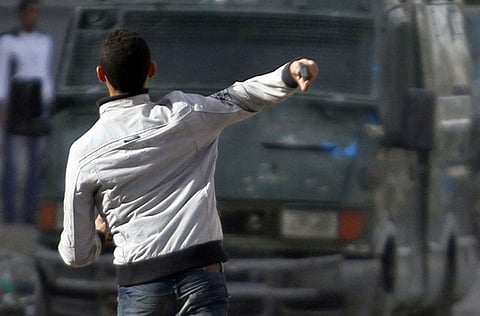No Twitter uprising
The internet has galvanised the Egypt protests, but offline events like corruption, police brutality and a lack of reforms fuelled the uprising

Middle-class, urban, web-savvy — the archetypal media image of the young protesters who have shaken Egypt's government captures only part of the reality.
This generation of dissidents, most of whom have lived their entire lives under the three-decade rule of President Hosni Mubarak, have rejected the moribund landscape of formal politics that has ensnared many of their liberal elders since Nasser's 1952 revolution.
Not content to feed on the crumbs of free expression thrown by the Egyptian regime, they have carved out an alternative space in which to develop, swap and spread ideas which challenge the status quo.
Until the government cut off internet access, the forums they organised were online, spread through a vibrant network of blogs and social media sites. Despite Egypt's limited internet penetration, Facebook has been "the main actor", says Khalid Al Aman, a political analyst at Durham University, England.
"The development of these events has transcended classical movements like the Muslim Brotherhood and other political parties." But despite the talk of a ‘Twitter revolution' it is worth remembering that the specific events that helped fuel this uprising happened offline.
On top of the long-burning grievances of political oppression and economic hardship, it was a 2008 strike by textile workers in the Nile Delta town of Mahalla Al Kubra that fired the imagination of many of those on the streets today. The three people shot dead by security forces during the Mahalla unrest on April 16 that year inspired an online movement which took its name from the date.
Angry working class
The traditional working class from all corners of the country have continued to provoke and inspire dissident activity ever since, occupying pavements outside parliament for weeks on end to highlight the devastating impact of the neoliberal reforms pursued by the ruling NDP party.
Some trade unions — most notably the real estate tax collectors — have gone on to break free from state control.
Away from the economic concerns, anger at police corruption and brutality has been at the heart of the new wave of protest. "We are all Khaled Said," a Facebook group dedicated to the memory of a young Alexandrian man beaten to death by police last year, quickly gained a huge following. Its message of solidarity against the security forces attracted young people who had never before taken part in political activism.
"I had never joined any protests before. I didn't believe in the people leading them," said Adef Hussaini, a call centre worker in Cairo. "Now, though, the people are the leaders."
But what started with a set of specific demands — the resignation of the interior minister, the end of emergency law, and the imposition of a two-term limit on the presidency — has coalesced into something far more radical and brought countless more people, whose latent hostility to the regime had never before translated into concrete action.
Husseini speaks for many of them when he says he will accept nothing less than the fall of the Mubarak regime. "Nothing else will do. This has to be repeated: that means Mubarak has to leave Egypt and nobody in the NDP can play any part in government."
It remains to be seen whether his wishes will be fulfilled.
Jack Shenker is a London-born journalist who writes regularly for The Guardian from Egypt.



